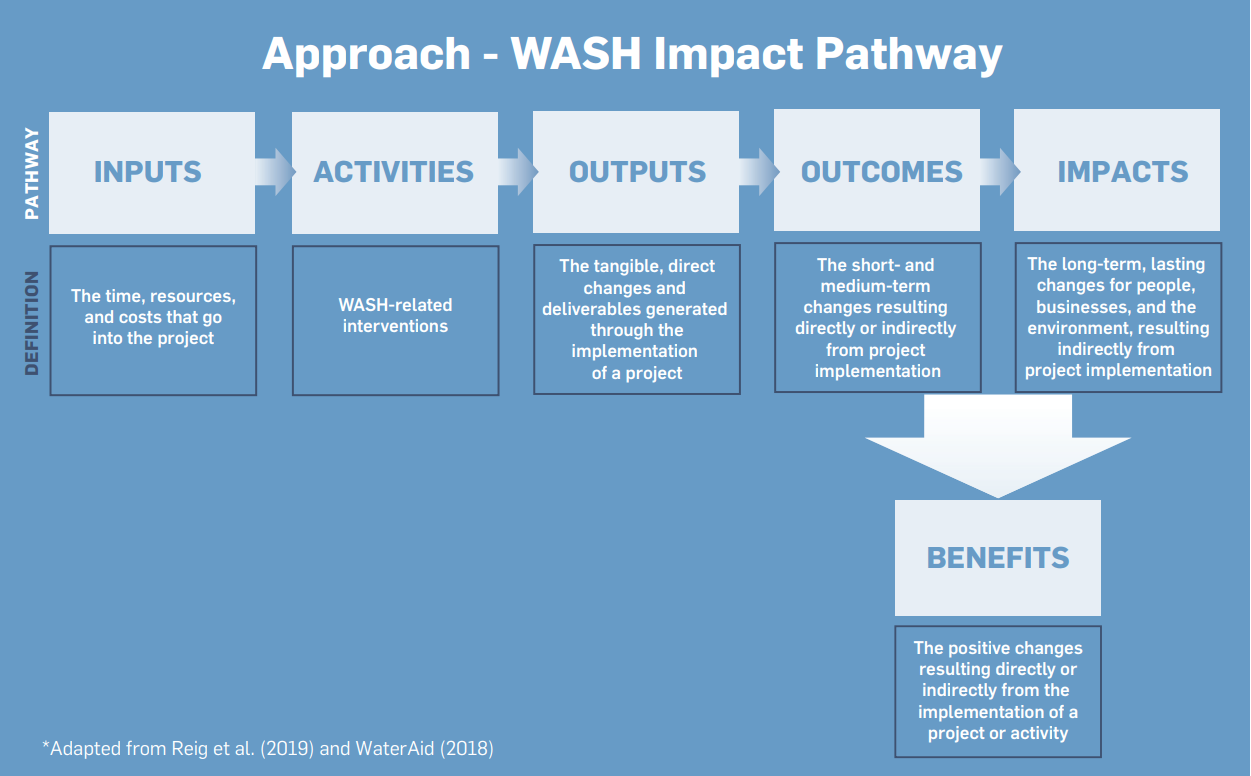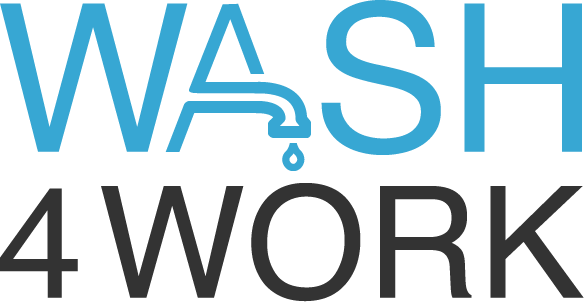
Standardized Accounting Method for the Co-Benefits of WASH
Background
To prepare businesses for new mandatory sustainability reporting laws, increasing pressure to provide more disclosure on businesses’ exposure to risks due to lack of access to WASH, and the actions businesses are taking to mitigate these risks, WASH4Work has initiated a project to develop a standardized accounting framework for WASH benefits and financial ROI to be launched at the UN Water Conference in March 2023.
The framework aims to enable businesses to seamlessly embed WASH benefit accounting into their overall corporate water stewardship accounting and reporting. A standardized WASH benefits accounting framework will align with the current industry-standard volumetric water benefits accounting method (VWBA). The project team includes members of the CEO Water Mandate, Pacific Institute, LimnoTech, Water.org, WaterAid, Coca-Cola, Diageo, Gap Inc., Microsoft, Starbucks, and Xylem.
Historically the impacts of corporate investments in WASH access have been measured in terms of the number of people (beneficiaries) reached. In addition, WASH investments have not been linked to corporate water stewardship goals for quantifying the volumetric water benefits of water stewardship activities. The WASH Benefits Accounting Framework will go beyond beneficiary counting to understand the broader and multiple benefits and impacts of WASH investments (social, environmental, economic), including the benefits of WASH access on water quality and quantity stewardship goals.
The WASH benefit accounting framework aims to:
- Strengthen the business case for investing in WASH; to go beyond beneficiary counting to a standardized framework and guidance for identifying and accounting for the broader impacts, outcomes, and benefits of investing in WASH such as: social, environmental, economic, health, well-being, and resilience.
- Make more concrete and science-based linkages between the benefits of WASH access and water quality, quantity, replenishment and resilience, and corporate water stewardship goals.
- Embed into the framework is the integrated, systems-level approach of climate-resilient WASH.
- Provide guidance for businesses on the use and implementation of the standardized accounting framework

Progress 2022
In 2022 the project defined the WASH impact pathways to fit the approach of the industry-accepted VWBA method (Figure 1).
A landscape assessment of current WASH accounting and reporting methods has been conducted to identify the key WASH activities associated with business investments in WASH access. Through a multi-stakeholder consultation, desired outputs, outcomes and impacts to be accounted for have been defined. The outputs, outcomes and impacts identified were further refined into a set of core and advanced indicators. Core indicators have been selected based on their quantifiability, priority, relevance and ease of use for business. Advanced indicators were selected to include more qualitative benefits that are more complex to quantify, or may not be a priority for all WASH investments.
Outlook 2023
Accounting methods will be defined for the core indicator set. The WASH Benefits Accounting Framework will be launched in March 2023. Guidance for business use will be developed in 2023 alongside piloting of the accounting framework by a selection of companies. In addition to socio-economic and environmental benefits, financial ROI of WASH activities for the business will also be included based on the accounting method established by WaterAid. Highlights from new findings on the financial ROI of WASH investments released by WaterAid in 2022 are included in this section.
